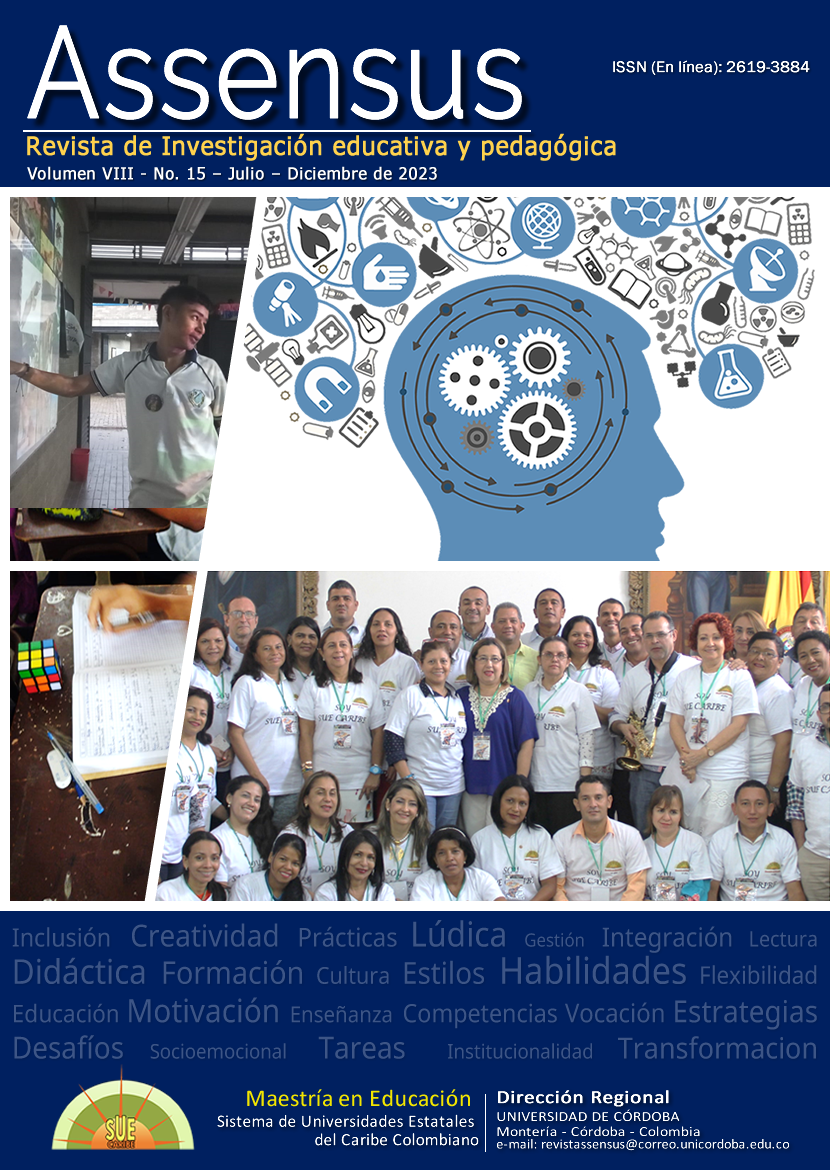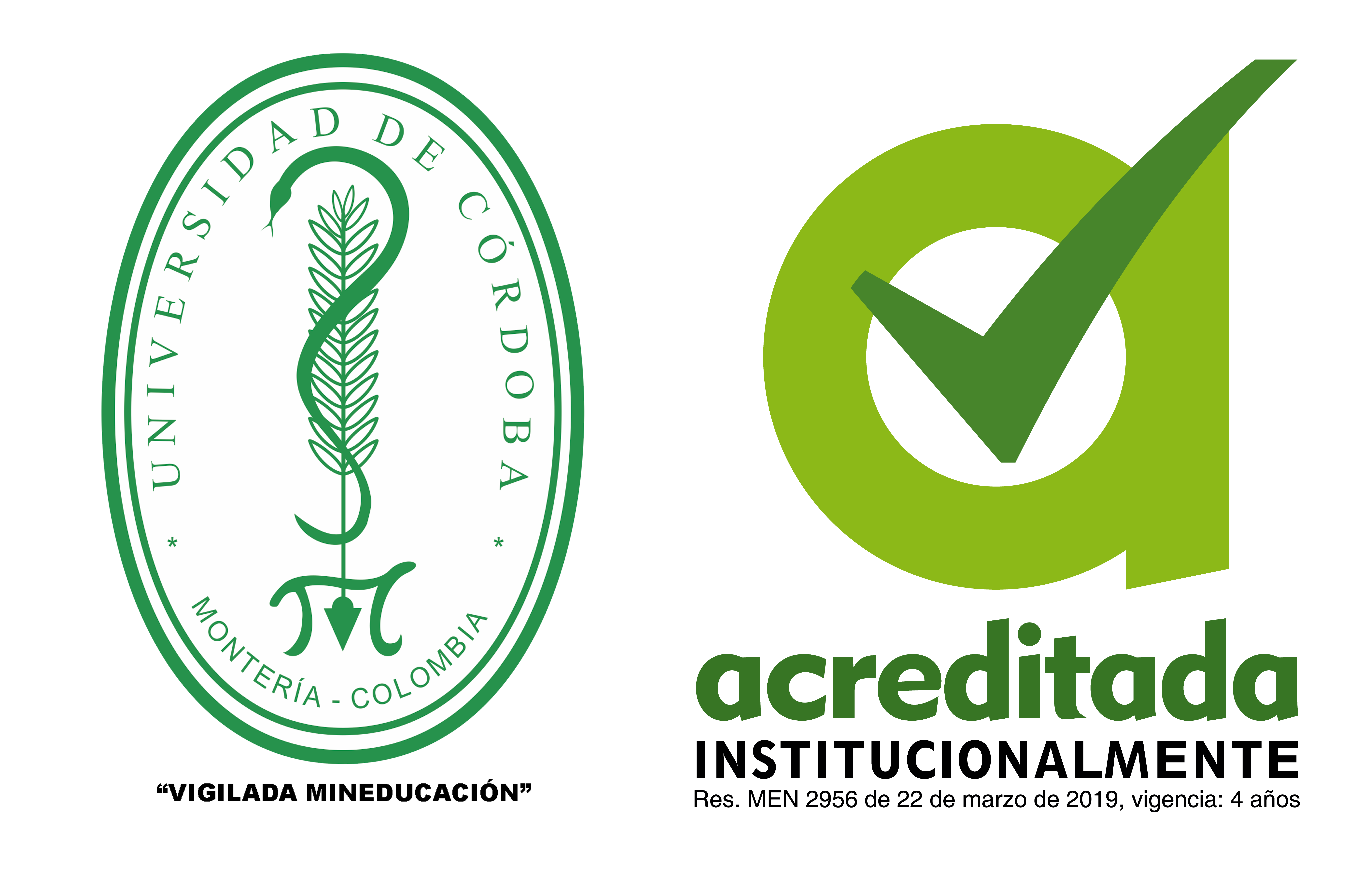Didactic strategies in the development of socio-emotional skills in students of the acceleration program of an educational institution
Estrategias didácticas en el desarrollo de habilidades socioemocionales en estudiantes del programa de aceleración de una institución educativa

This work is licensed under a Creative Commons Attribution-ShareAlike 4.0 International License.
The Assensus journal has a Creative Commons license. The citation, use and partial or total reproduction of the contents is authorized by citing sources. For more information, see https://creativecommons.org/licenses/by-sa/4.0/deed.en
Show authors biography
This article presents an analysis of the relevance of didactic strategies in the development of socio-emotional skills in students between 15 and 17 years of age who participate in an acceleration programme of an educational institution located in the municipality of Campoalegre-Huila, where the problem of school dropout in this population is presented and the difficulty of students to acquire socio-emotional skills is highlighted, affecting their ability to relate and adapt to the social environment. The study was carried out using a qualitative methodology with a phenomenological design. The main technique used was the semi-structured interview and the qualitative survey, using instruments such as interview guides and a questionnaire. The research demonstrated the importance of promoting socio-emotional skills in adolescents, as this favours their physical and mental health, academic performance and social relations. It is argued that teachers play a fundamental role in these teaching and learning processes from their experiences and knowledge and the need to continuously reflect on didactic strategies and their implementation in socio-emotional education in the educational context in order to contribute to the construction of their life project and address the different risk situations that affect students.
Article visits 436 | PDF visits
Downloads
- Bisquerra, R. (2003). Educación Emocional y Competencias básicas para la vida. Revista de Investigación.Educativa.21, (1).7-43. https://revistas.um.es/rie/article/view/99071/94661
- Cacho Becerra, Z., Silva Balarezo, M., y Yengle Ruíz, C. (2019). El desarrollo de habilidades sociales como vía de prevención y reducción de conductas de riesgo en la adolescencia. Transformación, 15(2), 186-205.http://scielo.sld.cu/scielo.php?pid=S2077-29552019000200186&script=sci_arttext&tlng=pt
- Castro, M. (2016). Educación Extra edad: “Los estudiantes del otro lado”. Universidad del Valle. Trabajo de grado para optar al título de Licenciada en Educación Popular. https://bibliotecadigital.univalle.edu.co/bitstream/handle/10893/12969/3486-0525533.pdf?sequence=1&isAllowed=y
- García, I., y Valencia, M. (2014). Nociones y prácticas de la planeación didáctica desde el enfoque por competencias de los formadores de docentes. Ra Ximhai, 10 (5), 15-24. Disponible en: http://www.redalyc.org/pdf/461/46132134001.pdf
- Gutiérrez, A., y Buitrago, S. (2019). Las Habilidades Socioemocionales de los Docentes, herramientas de paz en la escuela. Praxis & Saber, 10(24), 167–192. https://revistas.uptc.edu.co/index.php/praxis_saber/article/view/9819/8394
- Gutiérrez, J., Gómez, F. y Gutiérrez, C. (2018). Estrategias didácticas de enseñanza y aprendizaje desde una perspectiva interactiva, 1-15. http://www.conisen.mx/memorias2018/memorias/2/P845.pdf
- Ministerio de Educación Nacional. (2010). Modelo de Educativo Aceleración para el Aprendizaje. 2a Edición. https://redes.colombiaaprende.edu.co/ntg/men/archivos/Referentes_Calidad/Modelos_Flexibles/Aceleracion_del_Aprendizaje/Guia_del_docente/Manual%20Operativo.pdf
- Ministerio de Educación Nacional. (2022). Manual operativo. Modelo de Educativo Aceleración para el Aprendizaje. https://redes.colombiaaprende.edu.co/ntg/men/archivos/Referentes_Calidad/Modelos_Flexibles/Aceleracion_del_Aprendizaje/Guia_del_docente/Manual%20Operativo.pdf
- Pedraza, M., y Soto, S., Y. (2021). Desarrollo de habilidades socioemocionales para la prevención de conductas de riesgo en adolescentes. Corporación Universidad de la Costa. Obtenido de https://repositorio.cuc.edu.co/handle/11323/8464
- Revelo, C., A. Collazos A., y Jiménez, J. (2018). El trabajo colaborativo como estrategia didáctica para la enseñanza/aprendizaje de la programación: una revisión sistemática de literatura. Tecnológicas. 21, (41),115-134. http://www.scielo.org.co/pdf/teclo/v21n41/v21n41a08.pdf
- Tobón, M. (2010). Formación integral y competencia, Pensamiento Complejo, diseño curricular y didáctica. ECOE. Bogotá Colombia.



